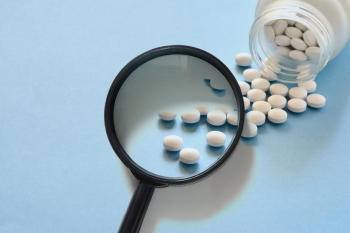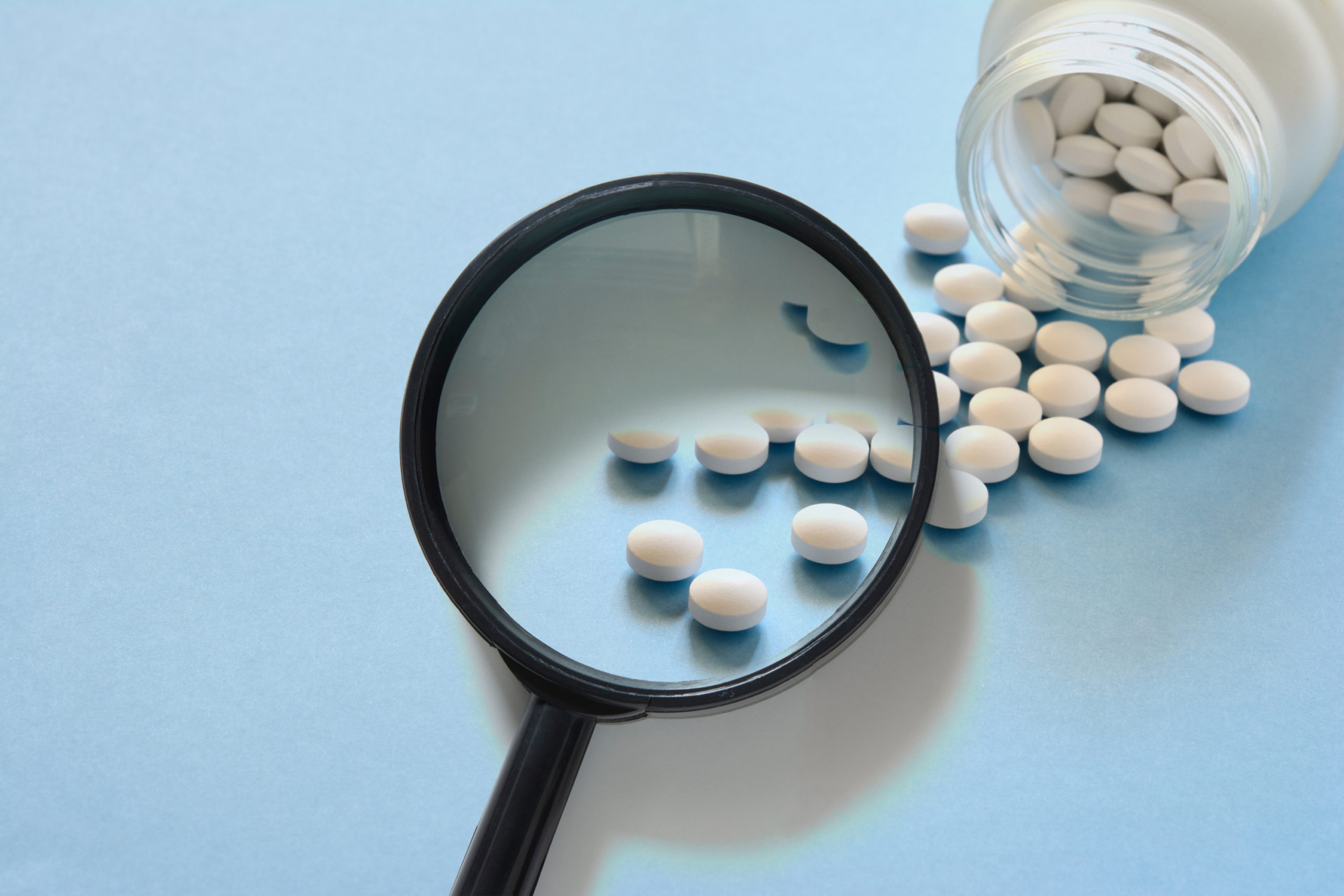
.png) Aarti
Aarti

The special drive recently carried out by drug regulators across several states, aimed at stopping the production of adulterated drugs besides ensuring good manufacturing norms and compliance, has resulted in the cancellation of licences of 18 pharma companies, and it is laudable decision.
As of now, we know that some 76 pharma companies were reportedly inspected by a joint team of the Centre and State governments and 26 of them have been served a show-cause notice.
With a complete ecosystem for the development and manufacturing of drugs/medicines, the Indian pharmaceutical industry, third largest in the world by volume and worth USD 40 billion in terms of value, contributes 3.5 percent of total drugs/medicines exported globally to more than 200 countries. While many of our reputed pharma companies have made their mark in highly regulated markets such as the US, the UK, Canada, etc., several resource-poor countries in Africa depend on India for medicines.
However, there have been some substandard medicines finding its way into the system causing embarrassment to our pharma sector. Not long ago, over 55,000 bottles of generic medication used to treat gout were recalled from the US market. More recently, cough syrups imported from India have failed in Gambia. And eye drops in the US.
On October 5 last year, the World Health Organisation issued medical product alerts over substandard (contaminated) paediatric medicines identified in WHO region of Africa – Gambia. Substandard medical products are those that fail to meet quality standards or specifications and are, therefore, "out of specification".
Four Indian products, namely, Promethazine Oral Solution, Kofexmalin Baby Cough Syrup, Makoff Baby Cough Syrup and Magrip N Cold Syrup manufactured by Maiden Pharmaceuticals Limited were found to contain unacceptable amounts of diethylene glycol and ethylene glycol as contaminants. WHO cautioned that diethylene glycol and ethylene glycol are toxic to humans which would result in abdominal pain, vomiting, diarrhoea, inability to pass urine, headache, altered mental state and acute kidney injury and may lead to death.
Again, on January 11 this year, WHO issued Medical Product Alert over two substandard (contaminated) liquid dosage medicines identified in WHO European Region – Uzbekistan. The two India products -- AMBRONOL syrup and DOK-1 Max syrup -- manufactured by Marion Biotech Private Limited were found contained unacceptable amounts of diethylene glycol and/or ethylene glycol as contaminants. WHO flagged the issue stating that if such medicines are used especially in children, it may result in serious injury or death and toxic effects can include abdominal pain, vomiting, diarrhoea, inability to pass urine, headache, altered mental state and acute kidney injury.
According to WHO, substandard and falsified medical products may cause harm to patients and fail to treat the diseases for which they were intended as they contribute to antimicrobial resistance and drug-resistant infections. They can be found in illegal street markets, via unregulated websites to pharmacies, clinics, and hospitals. Anti-malarial and antibiotics are among the most reported substandard and falsified medical products. Notably an estimated 1 in 10 medical products in low-and middle-income countries is substandard or falsified.
In India, the manufacture, sale and distribution of drugs are regulated under the provisions of Drugs & Cosmetics Act and Rules 1945 made thereunder. The Act, amended in 2008, provides stringent penalties for the manufacture of spurious drugs, drug not of standard quality or misbranded, adulterated or spurious. A drug is categorized ‘Not of Standard Quality’ (NSQ) for a variety of major and minor technical reasons such as not stating the name of the pharmacopoeia correctly, problem with quality of bonding agent, colouring agent, dissolution time, etc.
However, there are other more serious cases, where the active ingredient is significantly less in quantity that can harm patients. Under the Rules, the licensed manufacturing premises shall be inspected jointly by the Drugs Inspectors of Central Government and State Government to verify the compliance with the conditions of license and the provisions of the Drugs & Cosmetics Act and Rules for not less than once in three years or as needed as per risk-based approach.
Spurious or imitation drug products are drug formulations manufactured concealing the identity of the product usually resembling another drug, especially some popular brand, to deceive the buyer and cash on the popularity of the original product which may or may not contain the active ingredients. Under the Act, punishment for selling any NSQ drug which may cause death or grievous hurt is same as that is applicable for spurious or adulterated drugs causing death or grievous hurt which is imprisonment for a term which shall not be less than 10 years, but which may extend to imprisonment for life and with fine which shall not be less than Rs 10 lakh or three times the value of the drug confiscated whichever is more.
The cause for concern is that although the Government has taken various regulatory measures to ensure the quality of medicines in the country, like affixing Bar Code or Quick Response Code in Active Pharmaceutical Ingredients (APIs) and some drug formulations, spurious drugs seem to make its way into the system.
Out of a total of 2,76,842 drug samples collected across the country by the Central Drugs Standard Control Organisation (CDSCO), which has six zonal offices, four sub zonal offices, thirteen Port offices and seven laboratories spread across the country, and Drug Controllers in States/Union Territories during the period 2019-22, 8458 samples (3.05 percent) were found to be NSQ and 859 samples (0.31 percent) were adulterated.
In 2012, the Parliamentary Standing Committee on Health and Family Welfare which studied the functioning of CDSCO recommended that once a batch of a drug is found to be substandard and reported to CDSCO, it should issue a press release forthwith and even insert paid advertisements in the newspapers apart from uploading the information on the CDSCO website. Retail chemists should be advised to stop selling unsold stocks and return the same to local Drugs Inspectors as per rules. In its action taken report, the Health Ministry had stated that CDSCO started the drug alert system in respect of drugs found to be of NSQ, spurious, adulterated, etc. by the central drug testing laboratories.
The Mashelkar Committee which examined drugs regulatory issues including the problem of spurious drugs had recommended in 2003 that there should be one drug Inspector for 200 sales outlets and one drug Inspector for 50 manufacturing units. As per official estimates keeping in view the size of Indian Pharma Industry and the number of sales units, around 3200 drug Inspectors are required, both at the Central and State levels, but vacancies seem to be posing several challenges.
To ensure quality, safety and efficacy of medical products, there is need to strengthen the regulatory network as the pharma sector requires regular inspections by the authorities coupled with zero tolerance for any compromise with the quality.
That drugs manufactured even by licensed manufacturers have reportedly put a question mark on the quality of exported drugs – be it the deaths of children in Gambia and Uzbekistan and blindness caused by bad-quality eye drops -- there is need to strike at the root of spurious drugs. By ensuring that all pharmaceutical companies in the country conform to good manufacturing norms, avoidable loss of lives can be prevented.
Regulatory authorities can keep the general public educated by uploading information on spurious and sub-standard drugs on their websites and through press notes in newspapers on a regular basis.